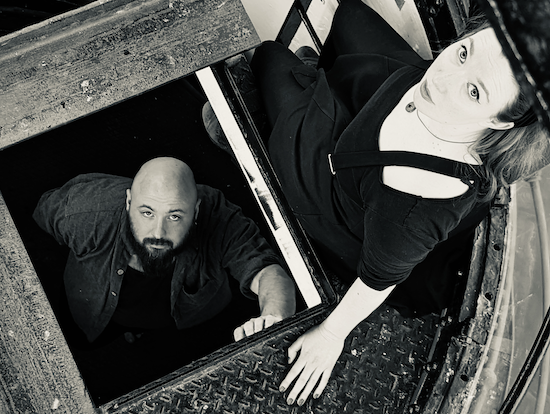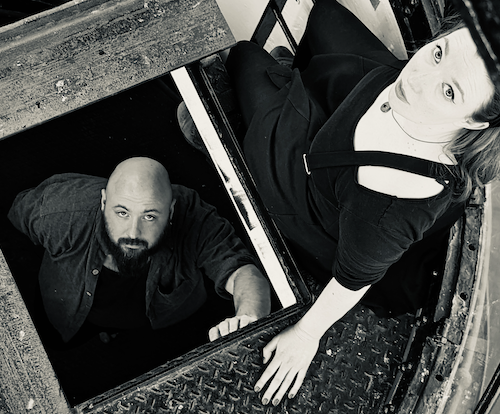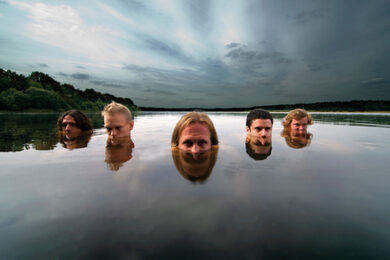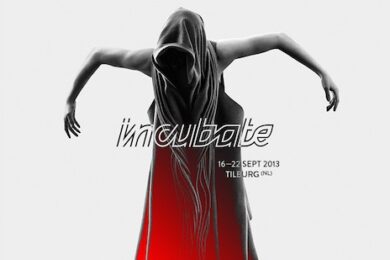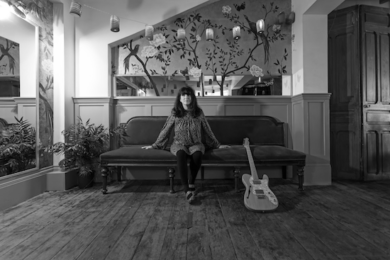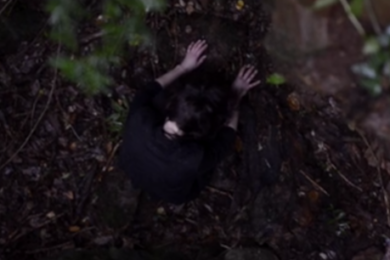Photo by Richard Talbot
To receive Nothing Will Grow In The Soil by Sealionwoman, become a Quietus Sound And Vision subscriber
The Crowhurst Yew – an impossibly gnarled tree in the yard of St George’s Church – has had quite a life. Believed to be 4,000 years old, its lifespan has included the construction of Stonehenge to the AI-generating of Adele songs in the voice of Plankton from SpongeBob SquarePants. It stands in a churchyard, but predates Christianity by some margin. Its visitors have included Romans, Anglo-Saxons, Vikings, and a group of Georgian locals who hollowed it out into a meeting place in the 1820s. There they discovered a cannonball lodged inside from the English Civil War, and affixed a door which is now hopelessly buried in its trunk.
In 2018, Kitty Whitelaw of jazz duo Sealionwoman had just completed her dark, atmospheric debut album Siren with double bass player Tye McGivern, inspired by the Scottish folk tale of the selkie – a creature that can shapeshift between the forms of human and seal. That was an oceanic album, but Whitelaw’s growing fascination with yew trees – and a visit of her own to Crowhurst – saw them return to the land. Five years on, their astonishing second album Nothing Will Grow In The Soil finally arrives: exploring the role these ancient, strange trees occupy in our culture, spirituality and imaginations.
The most obvious shift away from Siren comes in the new album’s intense physicality. “I wanted it to be heavier, and more grounded – to have the earth element, because the last record was in the sea,” Whitelaw explains. Her forays into the deeper end of her register and the dark churns of McGivern’s double bass – strengthened by a raft of digital effects – build a crushing, nightmarish landscape. Opener ‘Two Sisters’ carries shades of Scott Walker’s Bish Bosch; Whitelaw’s expressive vocal twisting amidst swelling drone, and a mysterious scraping like knives being sharpened.
This sense of malevolence runs throughout the rest of Nothing Will Grow In The Soil. “Something I love about yew trees is that they are essentially dangerous, even though they’re very beautiful. They’re highly poisonous – eating 50 yew tree needles can kill you,” she tells me excitedly. “I spent time standing inside yew trees before finishing the album. The soil is barren underneath them, and some people have allergic or asthmatic reactions when they’re underneath them, because they have this heavy atmosphere.”
Nothing Will Grow In The Soil generates its own thick, noxious aura through McGivern’s double bass. “You can get a lot of sounds from the double bass acoustically which sound like they’re coming from effects – scraping and distortion,” McGivern says of his attraction to the instrument. Through digital techniques like looping, he stretches these sounds out to produce swampy rhythms and cold, abrasive drones. While striking in themselves, they also lend a strange weight to moments where he returns to more familiar ideas from jazz and folk – the sudden arrival of dry, restrained plucking in ‘Butcher’s Broom’ feels rather like seeing an alien morph into one of your close relatives.
Whitelaw’s vocal performances are now ever more exploratory, which the pair credit to changes in recording techniques. While Siren was essentially captured in one live studio take, this time the duo recorded elements separately. No longer having to directly compete with the volume or range of McGivern’s instrument, Whitelaw could explore the lower and quieter areas of her range. “There are a lot of a lot of claustrophobic moments, because I had the freedom to do a lot of heavy breathing,” she says. This is heard on the chilling ‘Charcoal’, her close mic’d voice severely lowering the temperature, and making the song’s distorted, noise-based outro especially imposing.
One of the real joys of this album, however, is in the sounds that aren’t readily identifiable coming from either of them. It is full of thuds and scratches, like the hollow rattle that opens ‘Bracken’. “I’m curious to know what you think that sound is?” Whitelaw asks me. I feebly guess empty soup cans, before being politely told it is – obviously – tree bark. “We went to the grove at Kingley Vale, where there’s a whole grove of yew trees,” she says. “We had a really nice walk and took some field recordings.”
“Trees aren’t particularly active sound-wise,” McGivern laughs, “but we were encouraging them to make sounds – there’s lots of branches clacking together, and hollow sections that offer different tones.”
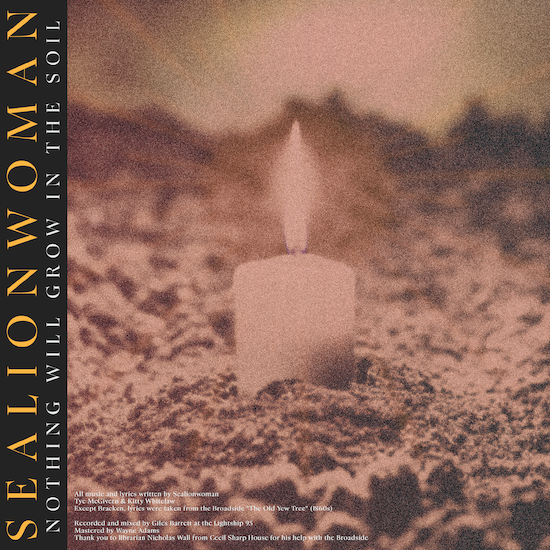
At its heart, this album is an enquiry into how these strange long-living, perennial plants relate to our culture and history. “There’s discussion about their role in pagan worship, which was adopted into early Christianity,” Whitelaw notes. This forms the basis for ‘It Rides A Horse’, on which she intones: “Bark is the flesh / Heart wood is blood,” echoing the consecration of bread and wine in Catholicism. “In my mind, when we were creating the track I wasn’t singing as a human being,” she says, “but perhaps from the tree’s point of view.”
Much of the album can be read as an attempt to give trees their own voices. ‘River’, she explains, is about “how one of the only ways to kill a yew tree grove is by drowning – by waterlogging,” Whitelaw explains. Her treatment of this is brutal: “My sisters / My children / Aren’t home” sounds the tree, amidst images of drowning, choking and rotting away. “I was imagining the trees being alive, and having the same questions we have about mortality.”
The album’s closing track ‘Bracken’ then recentres humanity, with an unexpected note of romance. “I made a trip to Cecil Sharp House’s library and had a look at their catalogue of Scottish folklore”, Whitelaw recalls. Librarian Nick Wall introduced her to an 1860s broadside entitled ‘The Old Yew Tree’. The poem presents an ageing married couple reflecting on how the yew tree in their local churchyard, where they first made love, will also mark their final resting place. “I suppose it is romantic,” Whitelaw offers, despite its darkness; she notes that their producer Giles Barrett “found that track hard to be alone with.” Sonically, it is also by far the warmest moment on the record. Over a gentle, loping double bass loop, McGivern delivers a minimalist but soaring performance. Whitelaw’s delivery is earnest, gently diverting from the original song but closing on the same note: “Together we will be / Where oft we told sweet tender tale / Under the old yew tree.”
Despite shifting so starkly in tone and voice from the preceding tracks, the payoff demonstrates what makes Nothing Will Grow In The Soil so compelling. We are used to speaking about nature as something we’re responsible for, and are constantly, casually destroying, but this record returns us to older modes of thinking, in which nature is an imposing, potentially dangerous force that exists beyond us, and that will devour us all in the end.
To receive Nothing Will Grow In The Soil by Sealionwoman, as well as a host of other benefits including exclusive essays, podcasts and playlists, and loads more specially-commissioned music, become a Quietus Sound And Vision subscriber. You can do so here

